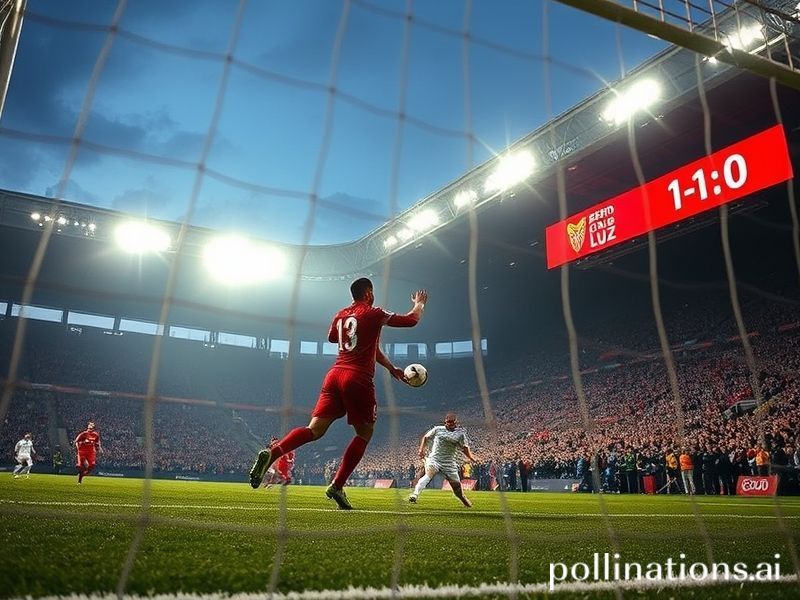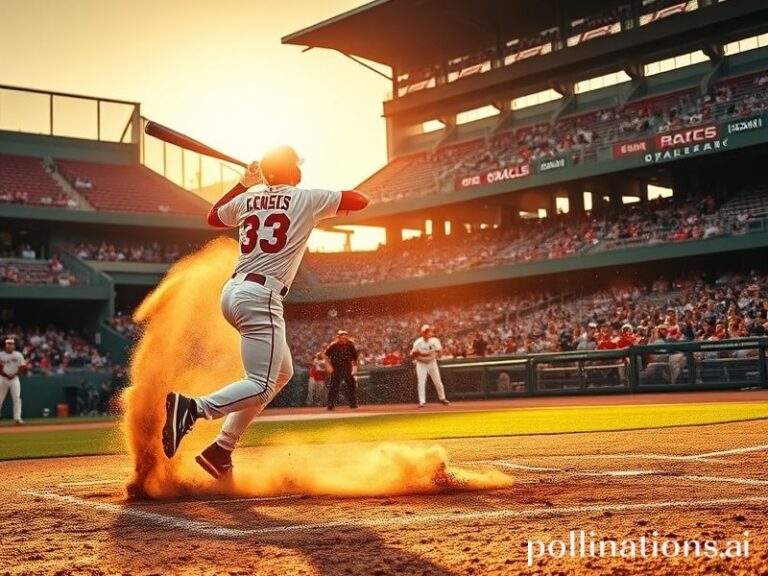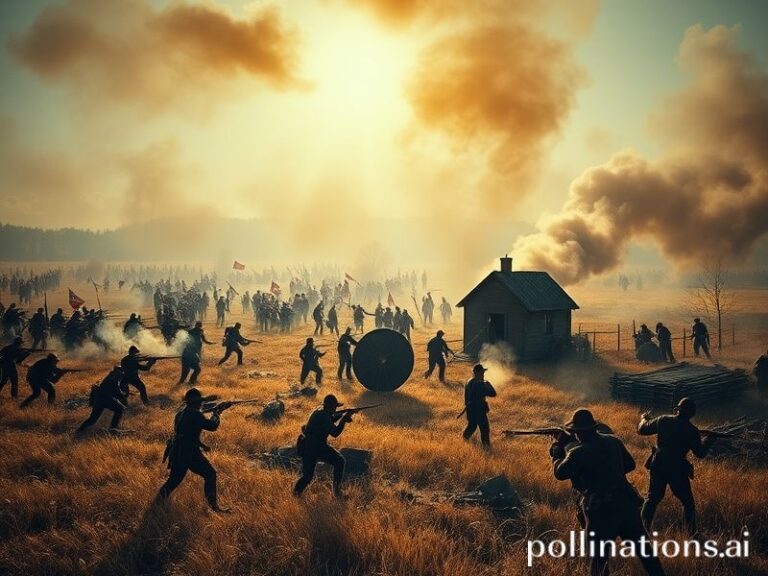Benfica vs Gil Vicente: How a Provincial Portuguese Match Quietly Steers the Global Anxiety Index
LISBON—Tonight, high above the Tagus, the floodlights at Estádio da Luz will do what they’ve done since 1954: pretend the rest of the planet isn’t quietly combusting. Somewhere between the 38th parallel and the 401(k) plunge, 60,000 souls will watch Benfica versus Gil Vicente, a fixture that sounds like the title of a minor Graham Greene novel nobody admits to reading. The outside world will call it a “Portuguese league match.” Inside the ground it is, of course, the very axis on which Western civilization teeters, give or take a soft penalty.
From Dakar to Doha, satellites will flick the feed across time zones, proving that late-stage capitalism can monetize literally anything, including two teams separated by 74km of Iberian asphalt. In Singapore, bleary-eyed traders will keep one Bloomberg terminal on Nico Otamendi’s disciplinary record and another on the Nikkei; in São Paulo, ultras wearing counterfeit Águia scarves will riot politely, conserving energy for the inevitable 3 a.m. price hike on subway fare. The global village, it turns out, prefers its tribalism televised in 1080p.
Benfica arrive as the aristocrats: Champions League last-eight, hedge-fund friendly, freshly groomed for whatever sovereign wealth fund needs laundering. Gil Vicente, a club named after a 15th-century playwright who mocked kings, are the provincial satirists—mid-table, perpetually broke, and therefore morally superior in the eyes of anyone who’s ever hated a bank. Their budget is roughly what Benfica spends annually on left-back hair gel, a fact the marketing department has spun into a charming underdog narrative, available in eight languages and zero refunds.
The geopolitical subplot is hard to ignore. Portugal sells itself as Europe’s California, if California had worse roads and better custard tarts. Hosting a league game while EU ministers argue over grain corridors is peak 2024: bread may be scarce, but at least there’s 90 minutes of choreographed angst. Qatar Airways sponsors the sleeves, Emirates slaps its logo on the LED boards, and nobody mentions carbon footprints because that would be rude, like pointing out the emperor’s crypto wallet is empty.
On the pitch, the tactical discourse promises to be as overheated as the planet. Benfica’s coach, Roger Schmidt, a German who speaks five languages and none of them irony, will press high, recycle possession, and generally behave like a man trying to optimize a spreadsheet. Gil Vicente’s manager, a former PE teacher named Capucho (yes, like the monkey), will deploy a low block, two banks of four, and the philosophical resignation of a man who’s read the fine print on existence. Somewhere in the stands, a super-agent in loafers made from endangered reptiles will take notes on teenagers’ hamstrings, calculating future transfer fees in the same currency dictators use to buy London penthouses.
And yet, there will be beauty, because humans are reliably absurd. A 19-year-old winger from Bissau, discovered via a TikTok highlight reel, will nutmeg a veteran Spanish international, and for eight seconds Twitter will forget Armageddon. A grandmother from Barcelos will clutch a rosary carved from Gil Vicente’s old wooden seats, muttering ancestral curses that sound suspiciously like VAR instructions. A Finnish tourist, lured by €12 Super Bock and the promise of “authentic atmosphere,” will realize too late that authenticity includes pyro and mild police brutality.
When the final whistle blows—probably to the tune of a 2-1 win for the rich guys, because the universe lacks imagination—the crowd will pour into the night convinced something meaningful occurred. Stock prices won’t move. The war in Kharkiv will not pause. Sea levels will continue their quiet insurrection. But 22 millionaires will have chased a sphere of stitched polyurethane, and for a flicker the global anxiety index will dip by 0.003%. Which, in the current climate, passes for hope.







